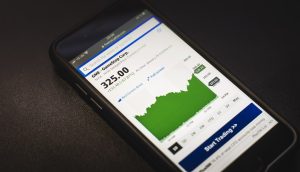The foreign exchange market, also known as the forex market, is the largest financial market in the world, with a daily turnover of over $5 trillion. This market is where currencies are traded, and it is affected by a variety of factors, including economic data, political events, and global news. However, the most important factor that causes movement in the forex market is the buyers and sellers themselves.
The forex market is a decentralized market, meaning that there is no central exchange or clearinghouse. Instead, the market is made up of a network of banks, brokers, and other financial institutions that trade with each other over electronic communication networks (ECNs) or through the interbank market. These participants, both individual and institutional, buy and sell currencies for various reasons, such as hedging, speculation, or international trade.
One of the main drivers of currency movements in the forex market is interest rates. When a country’s central bank raises interest rates, it makes the currency more attractive to investors, as they can earn a higher return on their investments. This increased demand for the currency causes its value to rise, and vice versa when interest rates are lowered. This is why traders pay close attention to central bank announcements and economic data releases that may impact interest rates.
Another factor that can cause movement in the forex market is geopolitical events. Political instability or uncertainty can lead to a flight to safety, where investors move their money out of risky assets such as stocks and into safer assets such as bonds or currencies. For example, during the Brexit vote in 2016, the British pound fell sharply against other major currencies as investors feared the economic impact of the UK leaving the European Union.
In addition to interest rates and geopolitical events, economic data releases can also affect currency movements in the forex market. Economic indicators such as GDP, inflation, and employment data can give investors insight into a country’s economic health and future prospects. Strong economic data can cause a currency to appreciate, while weak data can lead to depreciation.
Finally, market sentiment can also play a role in currency movements. Market sentiment refers to the overall mood or attitude of investors towards a particular currency or market. Positive sentiment can lead to increased demand and a rise in the value of a currency, while negative sentiment can lead to decreased demand and a fall in value.
In conclusion, the forex market is driven by the actions of its participants. As buyers and sellers trade currencies for various reasons, such as hedging, speculation, or international trade, they cause movements in the market. Interest rates, geopolitical events, economic data releases, and market sentiment are all factors that can affect currency movements in the forex market. Therefore, traders need to stay informed and up-to-date on these factors to make informed trading decisions.





